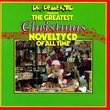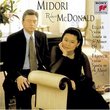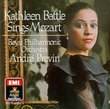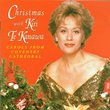| All Artists: Richard [1] Strauss, Fritz Reiner, Chicago Symphony Orchestra Title: Richard Strauss: Also sprach Zarathustra; Ein Heldenleben Members Wishing: 1 Total Copies: 0 Label: RCA Original Release Date: 1/1/1954 Re-Release Date: 3/9/1993 Genre: Classical Styles: Forms & Genres, Theatrical, Incidental & Program Music, Symphonies Number of Discs: 1 SwapaCD Credits: 1 UPC: 090266149421 |
Search - Richard [1] Strauss, Fritz Reiner, Chicago Symphony Orchestra :: Richard Strauss: Also sprach Zarathustra; Ein Heldenleben
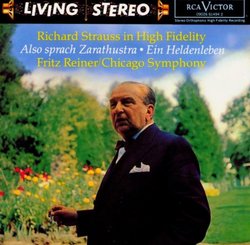 | Richard [1] Strauss, Fritz Reiner, Chicago Symphony Orchestra Richard Strauss: Also sprach Zarathustra; Ein Heldenleben Genre: Classical
RCA Victor's 1954-vintage stereophony has scarcely aged, all to the better of these ageless performances, heard in their finest transfers yet. Fritz Reiner's Ein Heldenleben fuses drama, poetry, scrupulous balances, bra... more » |
Larger Image |
CD DetailsSynopsis
Amazon.com essential recording RCA Victor's 1954-vintage stereophony has scarcely aged, all to the better of these ageless performances, heard in their finest transfers yet. Fritz Reiner's Ein Heldenleben fuses drama, poetry, scrupulous balances, bracing rhythm, and purposeful detail into a cogent whole. Much the same holds true for Reiner's Zarathusatra from the same year. Yes, the organ is foully out-of-tune, and a few exposed tympani notes are similarly suspect. Some may prefer Reiner's less flashy, more internalized 1960 Zarathustra remake, although it doesn't quite make the sonic impact of its hallowed predecessor. May this disc never be deleted. --Jed Distler Similar CDs
Similarly Requested CDs |
CD ReviewsGreat heat, if little warmth Paul Bubny | Maplewood, NJ United States | 12/02/2002 (5 out of 5 stars) "Fritz Reiner terrorized orchestral musicians for decades with his hawk's eye for detail and mordant sarcasm. He also got them to play with the synchronization of a close-order drill, as the two works on this CD clearly demonstrate. These 1954 recordings of two of Richard Strauss' best-known symphonic poems, made within a few days of each other and using simple miking techniques that yielded then-astonishing presence and depth (and continue to show up many newer recordings), are unassailable classics. Nobody can deny that, and I certainly won't. There isn't an ounce of fat on these frequently chubby and indulgent works--it's all lean body mass. The lush wallowing in opulent textures that you get from, say, Karajan in his 1970s "Also sprach Zarathustra" is simply not on the agenda here. Listen, for example, to the clean, no-nonsense "Sunrise" which begins "Zarathustra"--you forget this music (in a more floodlit performance) was used in "2001: A Space Odyssey" and abused ever since by everyone from Elvis to the makers of TV commercials. (That off-key organ, though, is a black mark on Reiner's reputation for flawless playing.) However--for performances which impart some warmth and humanity along with precision and clarity (hear the steely Chicago strings: they often sound as though the musicians were gritting their teeth while playing even the most gemutlich passages), Reiner is surpassed in both works by Rudolf Kempe or, from the days before stereo, Clemens Krauss (who, like Reiner, knew and worked with the composer). That said, these two performances (of which I marginally prefer "Ein Heldenleben") not only work as correctives to the smoothed-out approach in Strauss but also succeed brilliantly in their own right. Despite the reservation(s) I expressed earlier, this really is one of those CDs that belong in every collection, regardless of your tastes in music." The 1st recordings by a major company in stereo! Paul Bubny | 03/25/1999 (5 out of 5 stars) "RCA Victor broke ground with these two recordings for the industry's next major foray into the next generation - the first widely-distributed stereophonic recordings by a major recording company. Richard Strauss' "Ein Heldenleben" was recorded on two-track 30-i.p.s. tape on the unbelievable early date of March 6, 1954, and "Also sprach Zarathustra" two days later! Authority of performance was also present in the figure of conductor Fritz Reiner leading the powerful Chicago Symphony Orchestra. Audiophiles and record buffs don't need to be told that these two recordings are without a doubt, landmarks in recording history. If you are familiar with the highly-specialized audio magazine, "The Absolute Sound", you can find many references to these recordings throughout its numerous issues, and how they were made in its issue no. 49. Basically, a simple, widely-spaced two-microphone setup was connected to two mono mixers going to a modified RCA RTS-11 tape recorder with specially-constructed two-track recording heads. This stereo setup was an experiment that took back seat to the simultaneous monophonic recording going on during the same sessions.All I can advise you to do is to get this recording to hear what the next big step in recorded sound was like. At the same time, look for a modern, digital recording of each of these two works if your funds permit and compare them to these two 1954 recordings. Many of you will likely be shocked and wondering how it was possible for these two Reiner/Chicago recordings to sound so good on a date before many of you were born. Also, through repeated comparative hearings of these 1954 recordings with modern digital recordings, many of you may likely prefer the ones from 1954 over the digital ones, both sonically and interpretatively.Happy, revelatory listening!" They haven't done better in over 50 years! Audiot | Owego, New York United States | 03/22/2004 (5 out of 5 stars) "As a musician and recording engineer all I can say is WOW! This was recorded at the very dawn of stereo, probably using Ampex 200 series recorders and the tape available at the time, which was far noisier than what we have today. And still, the sonic imagery far outstrips most orchestral recordings, especially the digital ones. I have been to Orchestra Hall and it is such a beautiful sounding room. I feel that this recording represents one of the most well done reproductions of the true character of the hall. If you are looking for a noise-free digital recording with no life to it, then move on. If you, however, want to FEEL the Chicago Symphony and perhaps one of the most beautiful renditions of some very intense music by a truly masterful conductor, this is the one to buy!"
|

 Track Listings (15) - Disc #1
Track Listings (15) - Disc #1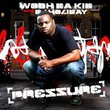
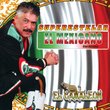
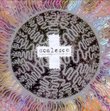
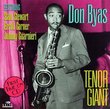
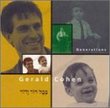
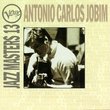


![Brahms: Ein deutsches Requiem [A German Requiem]](https://nationalbookswap.com/cd//m/23/8723/6058723.jpg)
